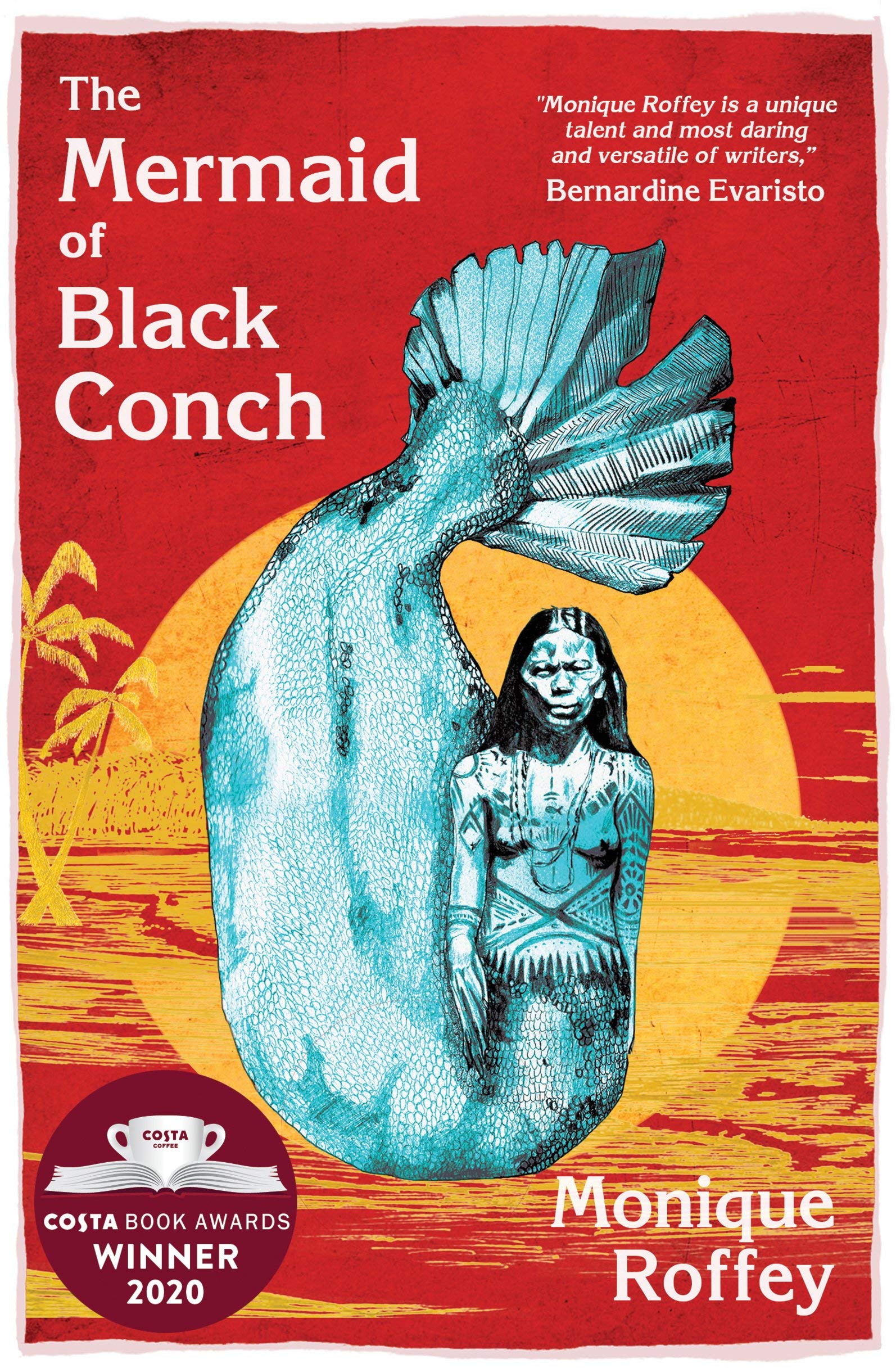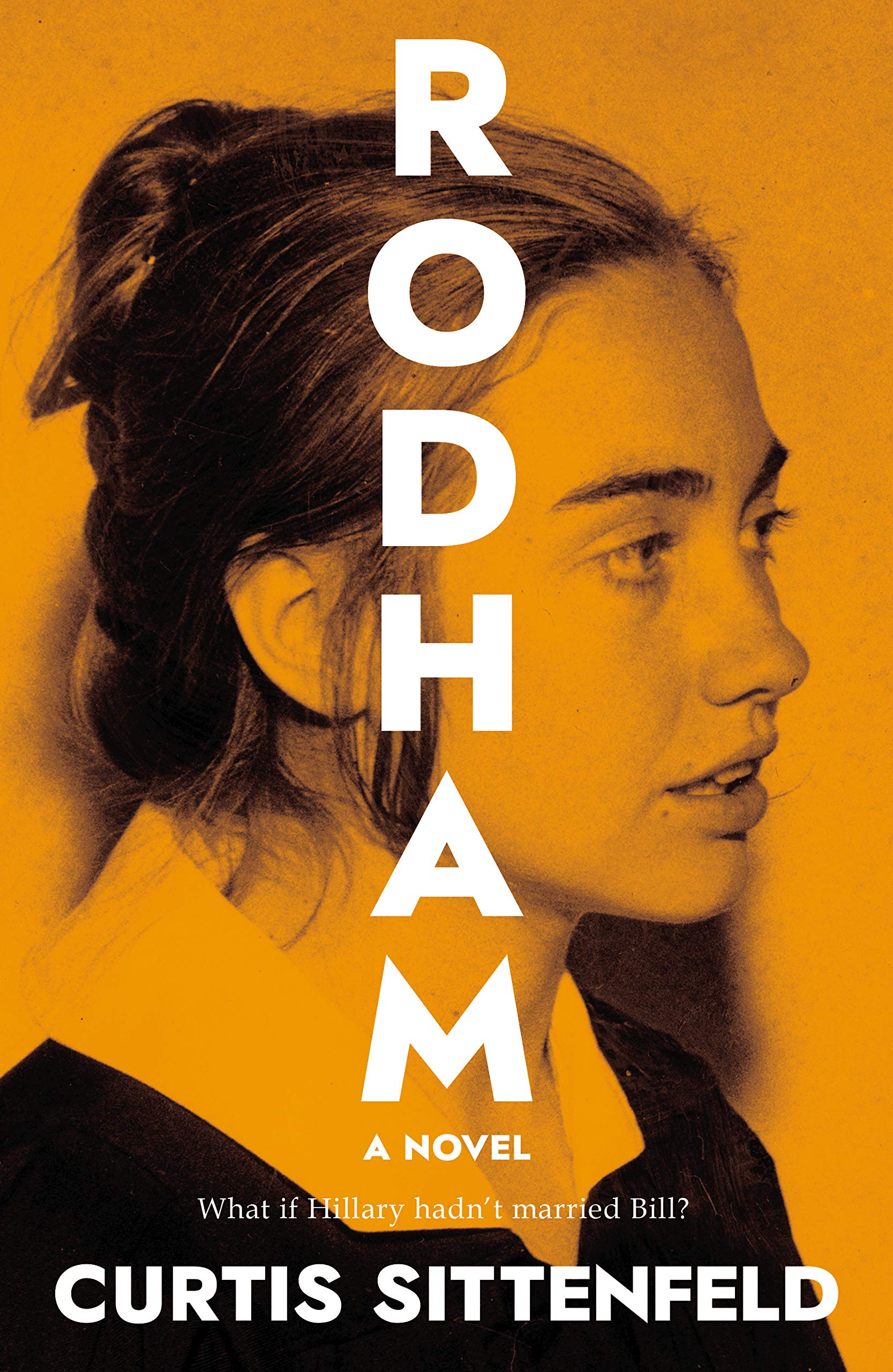Posted on April 7, 2021 by The Orwell Prize -

A wry and thoroughly wise state-of-the-nation novel which perfectly captures the anxieties of life in modern America: Weather is the work of an author wholly in control of her craft. Offill’s epigrammatic prose is so well observed and beautifully written it begs to be reread, and lingers with the reader well beyond the novel’s final page.”
Posted on April 7, 2021 by The Orwell Prize -

A story of love, family, and the colonial past in a Caribbean setting combine in Monique Roffey’s The Mermaid of Black Conch. This magic realist novel is inspired in its conception, deftly written and full of wisdom.”
Posted on April 7, 2021 by The Orwell Prize -

Famous for her counterfactual novels about American politics, in Rodham Curtis Sittenfeld brilliantly riffs on what might have happened had Hillary never accepted Bill – at the third time of asking. A beguiling mixture of fact and fiction, this book immerses us in the intricacies and deal-with-the-devil calculations facing anyone hoping to succeed in American politics – particularly a woman! – and captures the inner life of a public figure determined to make a difference, yet also in search of personal happiness.”
Posted on April 7, 2021 by The Orwell Prize -

Ali Smith was born in Inverness in 1962. She is the author of Spring, Winter, Autumn, Public library and other stories, How to be both, Shire, Artful, There but for the, The first person and other stories, Girl Meets Boy, The Accidental, The whole story and other stories, Hotel World, Other stories and other stories, Like and Free Love. Hotel World was shortlisted for the Booker Prize and the Orange Prize. The Accidental was shortlisted for the Man Booker Prize and the Orange Prize. How to be both won the Bailey’s Prize, the Goldsmiths Prize and the Costa Novel of the Year Award, and was shortlisted for the Man Booker Prize. Autumn was shortlisted for the Man Booker Prize 2017 and Winter was shortlisted for The Orwell Prize for Books in 2018. Ali Smith lives in Cambridge.
Smith, accepting her prize in a speech next to the mural of Orwell at Southwold Pier in Suffolk, sent this message:
The judges said:
The conclusion to Ali Smith’s seasonal quartet seals her reputation as the great chronicler of our age. Capturing a snapshot of life in Britain right up until the present day, Smith takes the emotional temperature of a nation grappling with a global pandemic, the brink of Brexit, heart-breaking conditions for refugees, and so much more. It will serve as a time-capsule which will prove to be essential reading for anyone seeking to understand the mood of Britain during this turbulent time.”
Posted on April 7, 2021 by The Orwell Prize -

Richard Evans’ comprehensive investigations into the most powerful and persistent conspiracy theories surrounding the Third Reich have striking resonance in the twenty-first century. His book serves as a reminder of how alert we must be for those who seek to cherry-pick historical details to suit their ideologies, particularly on the right, but also on the left.”
Posted on April 7, 2021 by The Orwell Prize -

Journalist John Kampfner offers an illuminating and gripping personal take on Germany since the first world war. Its struggle to transform itself from a pariah state has turned it into a nation that represents the best hope in contemporary Europe for the future of liberal democracy. Described by one reader as “a love letter to Angela Merkel,” this is an engagingly pacey and reflective analysis that highlights where Germany excels – and where others might take heed – while also recognising areas where the country falls short of its own high ideals.”
Posted on April 7, 2021 by The Orwell Prize -

In 1919, rape was declared an international war crime, yet since then the International Criminal Court has prosecuted no-one. In a harrowing but clear-eyed account, journalist Christina Lamb reveals the extent to which women and girls have been, and continue to be, raped as a deliberate tactic of war. From the killing fields of Rwanda and Kosovo, to war-time Berlin and Southeast Asia, to 1970s Argentina and present-day Nigeria, Lamb speaks to survivors, witnesses, and those who hold the memory of unspeakable atrocities. These crimes have never before been recorded and compiled in this way, making this a landmark work.”
Posted on April 7, 2021 by The Orwell Prize -

This compelling book offers a new, unsettling perspective on American history and especially its future. Taking aim at assumptions about decline, and aiming to supplant de Tocqueville’s influential study, this book is a dazzling intellectual tour of the United States, developing a radical new thesis about the emerging American civilisation and its unrivalled capacity for invention and reinvention.”
Posted on April 7, 2021 by The Orwell Prize -

In this book, the former director of GCHQ reflects on how to think clearly, drawing on his long experience in the intelligence services to explain how we should order our thoughts, check our reasoning and make intelligent use of intelligence. Historically informed and engagingly written, How Spies Think is brimming with insights, including into how to avoid misleading oneself, how to build and maintain lasting partnerships, and how to address digital subversion.”
Posted on April 7, 2021 by The Orwell Prize -

A detailed, surprising and moving account of the long history of Africans in Europe. Olivette Otele carefully charts the multiple interlinkages between two worlds often seen as separate, and in the process casts a light on contemporary debates about race and identity.”
Posted on April 7, 2021 by The Orwell Prize -

Cumbrian shepherd James Rebanks’s memoir recalls his family’s farming days, from his grandfather and father, to his own young children, who are already learning his trade. Vividly and movingly written, with sometimes painful honesty, this is part tribute to his forebears and a declaration of love for the English countryside. Equally, it is an impassioned plea for a return to more sustainable and environmentally friendly ways of farming, that allow livestock, the land and all its wildlife to thrive even as they support us.”
Posted on April 7, 2021 by The Orwell Prize -

A portrait of the American writer as a young woman, Rebecca Solnit’s memoir of coming of age is a powerful indictment of an all-pervasive and unchallenged culture of misogyny. In this environment, women of her generation –and today’s – have feared for their safety almost every day. Detailing disturbing personal experiences of harassment and abuse, she also highlights the almost unthinking silencing by men, who believed women should be kept in the wings. A plangent call for women to discover their voices and make themselves heard, this is an uncompromising and invigorating addition to the feminist and #MeToo conversation.”
Posted on April 7, 2021 by The Orwell Prize -

A remarkable, deeply personal story of friendships gone sour in the shadow of changing politics. Applebaum brilliantly captures the pain and confusion of seeing those close to us turn towards ugly forms of nationalism, and of having to confront the uncomfortable possibility that allies are now enemies.”
Posted on April 7, 2021 by The Orwell Prize -

The Interest is exactly the kind of history book Britain needs now, putting into sober context the back-slapping idea Britain did everything it could to wipe out slavery in the nineteenth century. Exhaustive and unflinching, Taylor’s book shows that, in reality, many British institutions and individuals desperately tried to keep it alive, motivated by greed.”
Posted on April 7, 2021 by The Orwell Prize -

A fascinating, deeply compassionate book that, while telling the stories of those charged with caring in its myriad forms, serves too as a pungent critique of the consumerism and policies of austerity that have heled engender our current crisis of care.”
Posted on April 7, 2021 by The Orwell Prize -

“A magnificent and moving account of everyday life in Putin’s Russia, this book explores the moral psychology of compromise and the difficulties of pursuing one’s ambitions, while living with integrity, or not, in the face of demands from an overmighty state. Beautiful and haunting, the book illuminates the challenges of moral life and the ways in which authoritarian rule is maintained.”
Posted on April 7, 2021 by The Orwell Prize -

A fascinating, sometimes harrowing, but intensely human account of the recent history of Tibet told through the stories of some remarkable characters.”
Posted on April 9, 2020 by The Orwell Prize -

Segregated Playgrounds exposed how a London housing development that had built a wall in its communal playground, in order to segregate the children of richer and poorer families, set a series of dominoes falling. Political leaders from across the spectrum joined in expressing their outrage and disgust at this social injustice, forcing the developer, Henley Homes, to back down and remove the wall. The follow-up reporting soon revealed dozens of other segregated playgrounds across the UK, and generated a huge response from readers, who contacted us in the hundreds with tips and firsthand experiences. The London mayor, Sadiq Khan, quickly declared a ban on segregated play areas; then the Conservative housing minister, James Brokenshire, vowed to end the practice nationwide.
Too poor to play: children in social housing blocked from communal playground
More segregated playgrounds revealed: ‘We just play in the car park’
Minister vows to end segregated play areas in all new housing in England

















